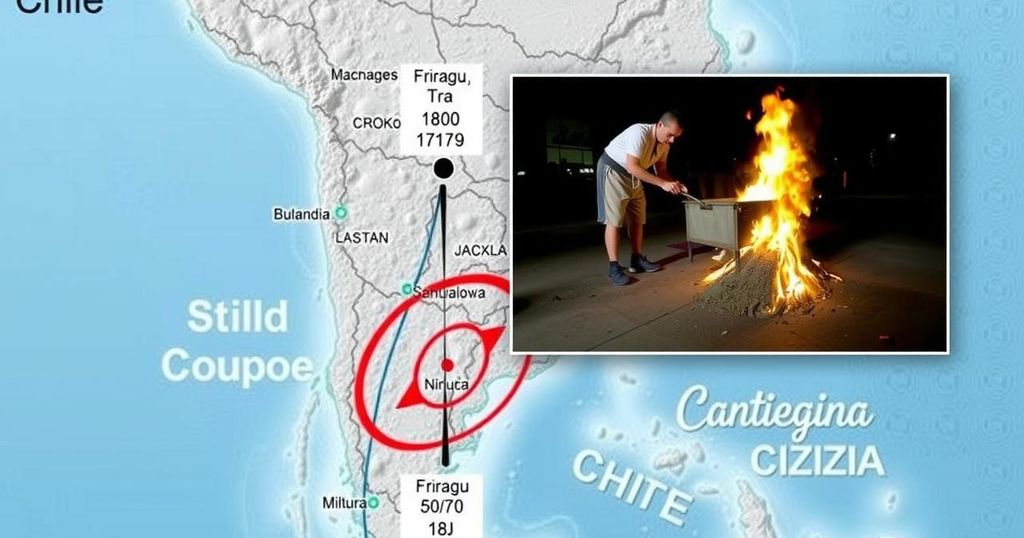Chile Experiences 6.4 Magnitude Earthquake; No Significant Damage Reported
On December 14, 2024, Chile experienced a 6.4 magnitude earthquake, with its epicenter located 41 kilometers east-southeast of Molina. Tremors affected central regions, including Santiago, but no significant damage was reported. Emergency teams quickly assured the public that there was no tsunami threat, highlighting Chile’s robust disaster management systems and preparedness for seismic events.
On Friday evening, December 14, 2024, Chile experienced a significant earthquake measuring 6.4 on the Richter scale, which affected central regions including the capital city, Santiago. The earthquake occurred at 7:38 p.m. local time, with the epicenter located approximately 41 kilometers east-southeast of Molina, at a depth of 110 kilometers. Fortunately, initial reports indicated that there was no substantial damage, and emergency services promptly assured residents that there was no tsunami threat following the seismic event.
Residents across central and northern Chile felt the tremors, but the lack of serious emergencies provided a much-needed sense of relief. Emergency teams quickly mobilized to assess the situation, while local authorities prioritized maintaining public calm by disseminating accurate information about the unfolding circumstances. Notably, Chile’s coastal areas, often vulnerable to tsunami risks, were reassured as the country’s oceanographic service confirmed that no tsunami was expected.
Chile, located on the Pacific Ring of Fire, regularly contends with seismic activity. The nation has exhibited remarkable resilience in managing natural disasters, thanks in part to stringent building codes, advanced infrastructure, and effective emergency response protocols. Although the earthquake served as a stark reminder of nature’s force, it simultaneously underscored the country’s preparedness and robust disaster management systems.
While the quake induced some anxiety among the populace, the rapid and composed response exemplifies Chile’s experience in dealing with such occurrences. The situation affirmed that consistent efforts in disaster preparedness play a crucial role in mitigating potential devastation. As the tectonic plate activity persists, Chile steadfastly upholds its commitment to safeguarding its citizens against future seismic threats.
Chile’s geographical positioning on the Pacific Ring of Fire renders it particularly susceptible to frequent earthquakes. This has necessitated the development of rigorous infrastructure and robust emergency protocols to manage such natural disasters effectively. Over the years, the country’s experience with seismic events has transformed it into a model of resilience, enabling it to respond swiftly to potential crises resulting from earthquakes. The recent earthquake serves as an example of how Chile navigates its geological challenges by leveraging its sophisticated disaster management strategies, which prioritize public safety and community preparedness.
In summary, the recent 6.4 magnitude earthquake that struck Chile on December 14, 2024, demonstrates the country’s effective disaster management capabilities. While the tremors were felt widely, the absence of serious damage and the swift response of emergency services illustrate Chile’s commitment to public safety. As residents confront the ongoing reality of seismic activity, the nation remains well-prepared, equipped with strategies that prioritize resilience and community reassurance in the face of natural challenges.
Original Source: www.travelandtourworld.com




Post Comment